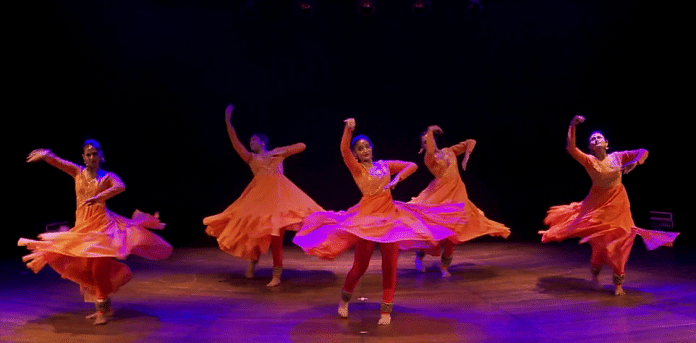New Delhi: Arts education in the country needs to get rid of the “colonial orientation” and become more India-oriented, a parliamentary panel has said in its report submitted in the Budget session (currently in recess).
The parliamentary standing committee on education, women, children, youth and sports, headed by Rajya Sabha MP Vinay Sahasrabuddhe, suggested that subjects like music, dance, visual arts and theatre should be made compulsory up to Class 10.
In its report, titled ‘Reforms in the education of performing and fine arts’, the panel said, “Art education should be made a compulsory subject up to Class 10, as NEP (National Education Policy) 2020 has called for integration of art in education and that infrastructure and facilities be provided for the same in every school. Art education should cover four main streams, namely music, dance, visual arts and theatre with special emphasis on Indian traditional and folk arts.”
“It should also include local traditions like episodes from folk tales, stories, plays, paintings, etc so that its learning generates interest and becomes appreciable,” the report, submitted on 7 February, added.
The report also said there is a need to bring about a radical change in the “colonial orientation in the understanding of arts education”. A robust policy framework should be developed for the same, it added.
“This is critical as the colonial orientation and the resultant attitude/mindset is producing a non-reflective mechanical workforce which is only capable of routine design and production, and is afraid to indulge in bold and creative experimentation,” it said.
The panel suggested a consultation with bodies like the National Council for Educational Research and Training (NCERT), State Council for Educational Research and Training (SCERT) and different university departments to work on a curriculum for arts education.
Institutes of national importance
In the context of higher education, it said the government should explore the possibility of establishing a ‘Rashtriya Kala Vishwa Vidyalaya’ or a central arts university.
Talking about the existing institutions for arts education, the panel said the government should consider granting the ‘institutes of national importance’ status to institutions like Film and Television Institute of India (FTTI), Pune, National School of Drama (NSD), New Delhi, Akhil Bharatiya Gandharva Mahavidyalaya, Mumbai, and Sir J.J. School of Arts, Mumbai, among others.
“Such accreditation/recognition to these reputed institutes/bodies will help them immensely in expanding their work and vision and to validate and document their learning,” the panel said, adding that the accreditation will help the institutes in granting graduate and postgraduate degrees.
It also suggested that the FTII should open more regional centres to allow more students. The institute should “start courses based on emerging technologies like artificial intelligence, augmented reality and mobile telephony, set up a wing to provide subtitles in foreign languages for Indian movies for export to different countries, set up a music department and courses on film management,” it added.
(Edited by Neha Mahajan)
Also read: ‘Will be attending offline classes for 1st time’ — students excited, anxious as DU set to reopen



